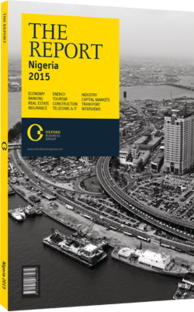Taiwo Oyedele, Partner and Head of Tax and Regulatory Services, PwC Nigeria, on the need for reforms to streamline the tax system: Viewpoint

While the tax burden in Nigeria is fairly in line with regional levels, the country is consistently rated lower than similar economies in areas like number of tax payments and time needed to comply. The “Paying Taxes” 2014 report, a joint study of tax regimes in 189 economies by PwC and the World Bank, finds that on average globally a medium-sized company has a total tax obligation of 43.1% of profits (52.9% for Africa), makes 26.7 payments (36.1 payments for Africa) and needs 268 hours (320 hours for Africa) to comply with its tax obligations.
For Nigeria, a comparable company has a total tax rate of 33.8%, makes 47 payments and spends 956 hours annually to comply with taxes. This means that Nigeria is globally and regionally competitive in terms of tax rates, but needs significant improvements in terms of number of tax payments and time to comply. These latter two factors account for the very low overall ranking for Nigeria at 170 out of 189 economies worldwide in terms of paying taxes.
Although Nigeria is taking some positive steps to reform the tax system, such as the implementation of the Integrated Tax Administration System, to achieve the desired result and make Nigeria competitive, certain urgent actions must be taken as outlined below. 1. Address the multiplicity of taxes: There should be only one tax per tax base. The Nigerian tax terrain is expansive with a wide array of taxes and levies imposed by different levels of government leading to a multiplicity of taxes. To address this, similar taxes should be consolidated and earmark taxes should be reduced to the barest minimum. An approved list of taxes should be streamlined and adhered to by all tiers of government. Caution must be exercised in introducing new taxes. It is better to raise rates of existing taxes than introduce new ones, if absolutely necessary. 2. Address the multiplicity of tax collection agencies: There should be only one revenue agency per level of government. To make tax payment simpler, the government should devise a mechanism of centralising the collection of taxes and then allocating revenues to the various fiscal units as necessary. Also, there should be a means of interconnecting payments of the different taxes in such a way that an overpayment of one can be used to offset another. Refunds should be verified and paid promptly. 3. Review the tax laws to address ambiguities and investment-unfriendly provisions. Laws that form the basis of taxation include the bases of imposition and mode of collection. Complicated and ambiguous tax rules increase the compliance burden. To ensure that taxpayers find the laws easy to read and apply, there is an immediate need to reduce ambiguities, eradicate errors and amend obsolete provisions. 4. Enhance the use of technology and provide an electronic tax filing system. This involves providing electronic tax filing and payment options to businesses. Nigeria has come of age and with the vision of becoming one of the largest economies by 2020, embracing technology should be a priority. Creating a platform for taxpayers to file and pay taxes online will reduce compliance time and the associated costs. 5. Institutionalise professionalism in tax administration. Tax authorities have become more aggressive in revenue collection. However, their approach and attitude in many cases is a contributory factor to how much time taxpayers spend to comply with tax requirements. Thus, there should be continuous training and re-orientation for tax officers. They must be technically sound and professional in carrying out their duties. Furthermore, there must be mutual trust and respect between taxpayers and tax administrators.
The ease of tax compliance is a key factor in attracting and retaining investments. An overly complicated system is more likely to witness high degrees of tax evasion and corruption, contribute to a large informal sector, and result in reduced investment and declining employment rates. Hence, there is need for urgent action to achieve real economic growth and help the economy become more globally competitive.
You have reached the limit of premium articles you can view for free.
Choose from the options below to purchase print or digital editions of our Reports. You can also purchase a website subscription giving you unlimited access to all of our Reports online for 12 months.
If you have already purchased this Report or have a website subscription, please login to continue.

